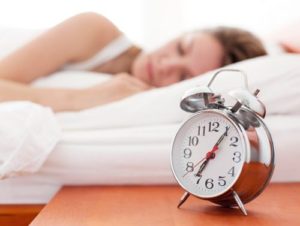What Happens When You Don’t Get Enough Sleep?
As much as we all love sleep, most of us don’t get enough. And for many of us, when we make time to sleep, we often end up tossing and turning, or waking up early with a fear that we missed our alarm.
Pandemic stress has given many of us a lot of sleepless nights. During the first month of the pandemic, I often found myself wide awake at 3:00 am with no hope of dozing off again. Thank God those nights are over.

Sleep is critical for our health. In fact, we can go a lot longer without food than without sleep. But if it’s so important, then why are we so bad at it? Why do we let meaningless distractions like Netflix or social media rob us of something so important to our health?
We’ve all been guilty of skimping on sleep for something far less important. We’ve all paid the price of waking up feeling like crap and needing coffee just to get us out the door. There’s really no reason not to reserve a good part of our day to give our body and our mind one of the things it needs the most.
So how much sleep do we need? This varies depending on your age, activity level and stress level. For most of us, seven hours is just about right. For some of us eight is better. And it seems like for all of us, six hours or less will begin to greatly compromise our health. Oh, and getting only four hours can reduce our immune function by as much as 70 percent.
But besides compromising your immune system, a lack of sleep can do some real damage to your body and your mind. Just how bad is it?
You’re Less Effective
The National Sleep Foundation’s annual Sleep in America poll finds that among U.S. adults with excellent sleep health, nearly 90% say they feel very effective at getting things done each day, compared to only 46% of those with poor sleep health. And when you don’t get enough sleep, you’re much more likely to make mistakes. You’ll find yourself spending more time correcting errors that probably wouldn’t have happened if you’d gotten plenty of sleep. “You’re more likely to make mistakes at work, for example, but less likely to realize it and correct them,” says Shalini Paruthi, M.D., a sleep specialist at the American Academy of Sleep Medicine.
You Drive Drunk
The more hours of sleep you miss, the harder it is for you to think and perform as well as you would like. Studies have shown that going too long without sleep can impair your ability to drive the same way alcohol does. Being awake for at least 18 hours is the same as someone having a blood alcohol content (BAC) of 0.05%. Being awake for at least 24 hours is equal to having a blood alcohol content of 0.10%, which is higher than the legal limit of 0.08%.
You Look Like Crap
 After a good night’s sleep, most of us look rested and healthy. But a night or two of bad sleep makes most of us look like crap. Even worse is the long-term effect sleep has on your appearance. People who regularly skip sleep increase their risk of early aging. That’s because collagen and other proteins that give skin its elasticity are repaired during deep REM sleep. Dark circles around your eyes form because the body’s stress response to a lack of sleep is to redirect circulation to the most vital organs, including the brain. Your skin responds to a lack of sleep as well. Decreased blood flow, along with stress hormones, means dullness, dryness and breakouts.
After a good night’s sleep, most of us look rested and healthy. But a night or two of bad sleep makes most of us look like crap. Even worse is the long-term effect sleep has on your appearance. People who regularly skip sleep increase their risk of early aging. That’s because collagen and other proteins that give skin its elasticity are repaired during deep REM sleep. Dark circles around your eyes form because the body’s stress response to a lack of sleep is to redirect circulation to the most vital organs, including the brain. Your skin responds to a lack of sleep as well. Decreased blood flow, along with stress hormones, means dullness, dryness and breakouts.
Your Hair Thins
Sleep is important for protein synthesis of your hair as well as the proper release of growth hormones. Also, your body interprets sleep deprivation as high stress. Your body repairs itself while you sleep. Without plenty of time to sleep, your body starts to panic and floods your system with stress hormones like cortisol, which starts to thin and weaken your hair.
Your Belly Gets Bigger
When your cortisol levels go up, your body starts to store more fat in your midsection. Sleep also controls the two hormones that affect your appetite—ghrelin tells your brain you’re hungry, while leptin tells your brain you’re not. Research shows that not getting enough sleep increases ghrelin and decreases leptin, which causes us to be hungry all the time. Also, if you’re not getting enough REM sleep to build muscle, you won’t be getting the full benefit of time you spend in the gym.
Your Sex Life Suffers
Testosterone drives your sex life. It keeps you energized and interested. Sleep is critical for maintaining healthy T levels. That’s because your body only produces testosterone when you are in the deepest stages of sleep. If you’re only getting a few hours of sleep each night, you won’t be all that up for sex.
As you can see, not getting enough sleep wreaks havoc on your body. At Exercise Inc, we believe adequate sleep is one of the key components to your health. That’s why sleep is one of our Simple 9© habits. If you want to learn more about how to get better sleep, check out this article we posted a couple of months ago.
Stay Strong and Healthy,
Bo Railey

